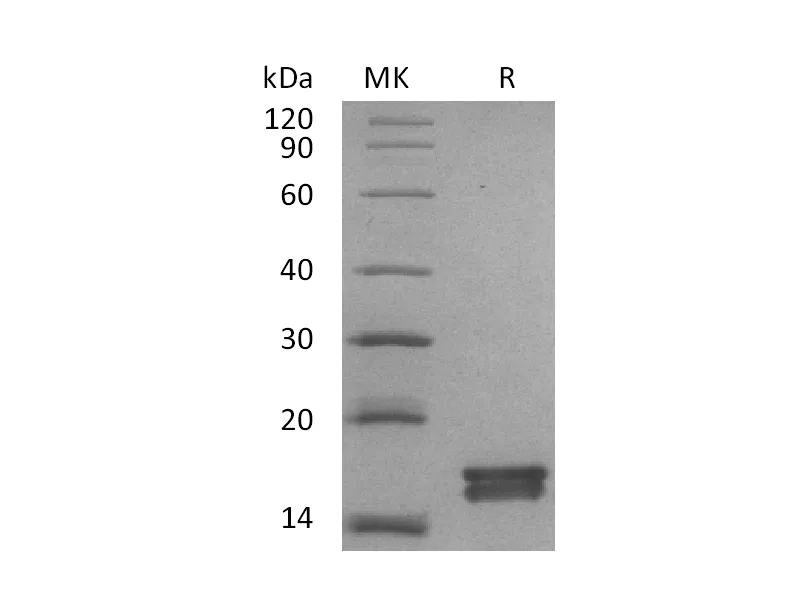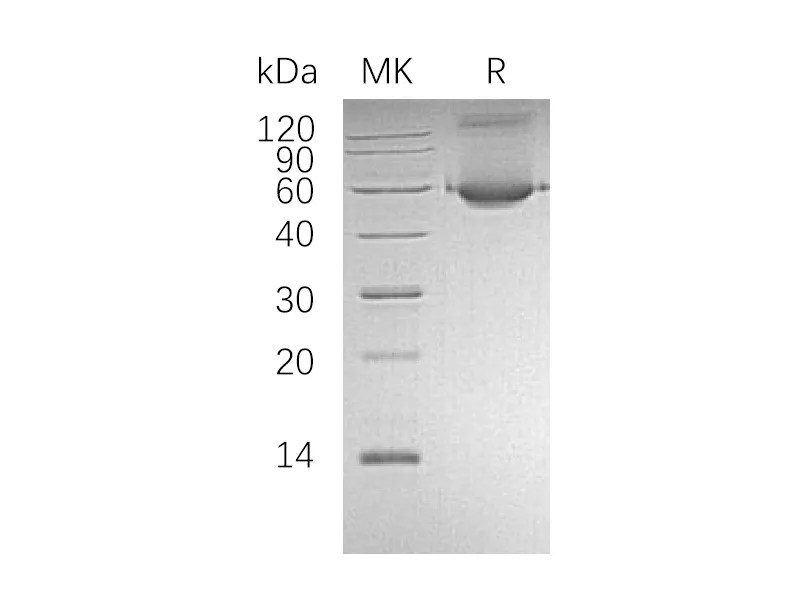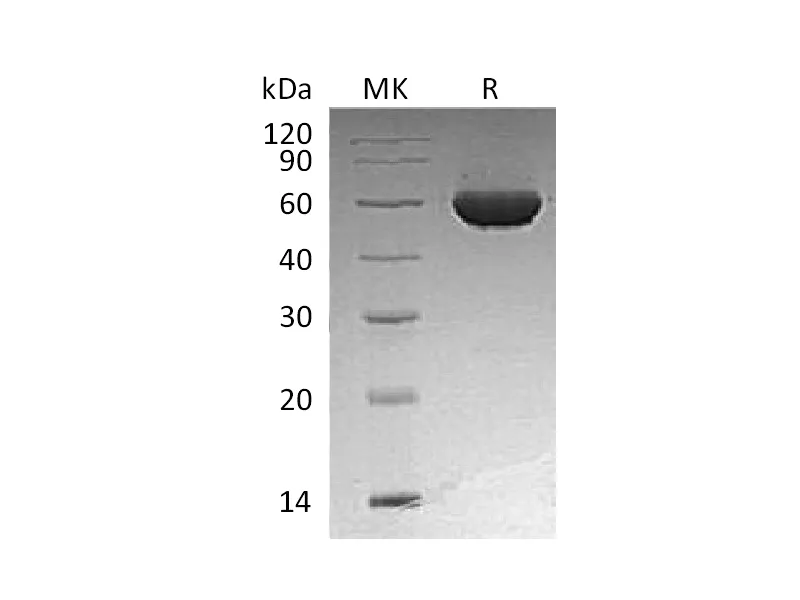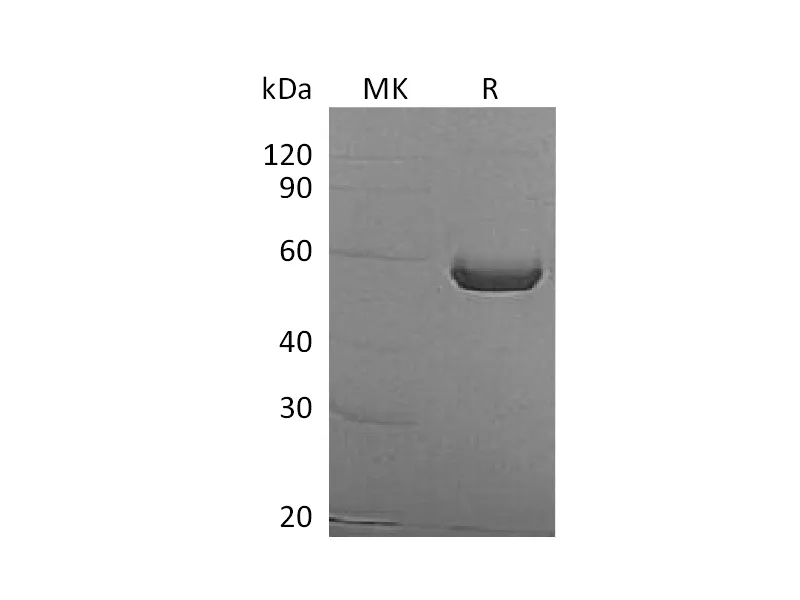Alternative Names
Amphoterin-Induced Protein 2; AMIGO-2; Alivin-1; Differentially Expressed in Gastric Adenocarcinomas; DEGA; AMIGO2; ALI1
Background
Amphoterin-Induced Protein 2 (AMIGO2) is a single-pass type I membrane protein which belongs to the AMIGO family of immunoglobulin superfamily. Mature AMIGO2 contains an Ig-like C2-type (immunoglobulin-like) domain, 6 LRR (leucine-rich) repeats, a LRRCT domain, as well as a LRRNT domain. AMIGO2 is mainly expressed in in breast, ovary, cervix, and uterus, although lower in lung, colon, and rectum. AMIGO2 required for depolarization-dependent survival of cultured cerebellar granule neurons. AMIGO2 may mediate homophilic as well as heterophilic cell-cell interaction with AMIGO1 or AMIGO3. AMIGO2 may contribute to signal transduction through its intracellular domain, and may be required for tumorigenesis of a subset of gastric adenocarcinomas.
Note
For Research Use Only , Not for Diagnostic Use.




